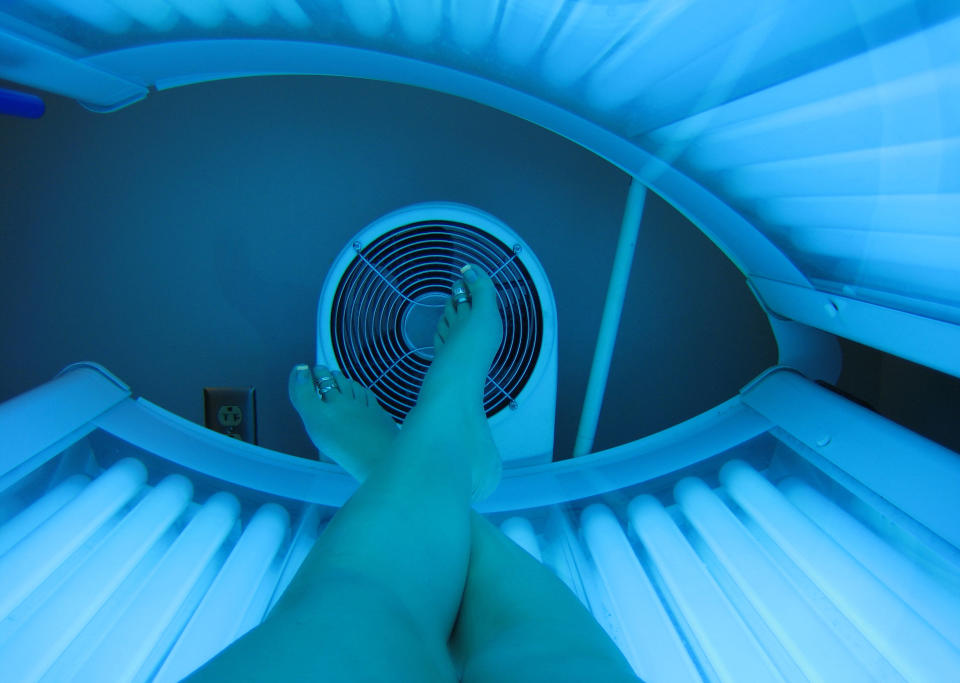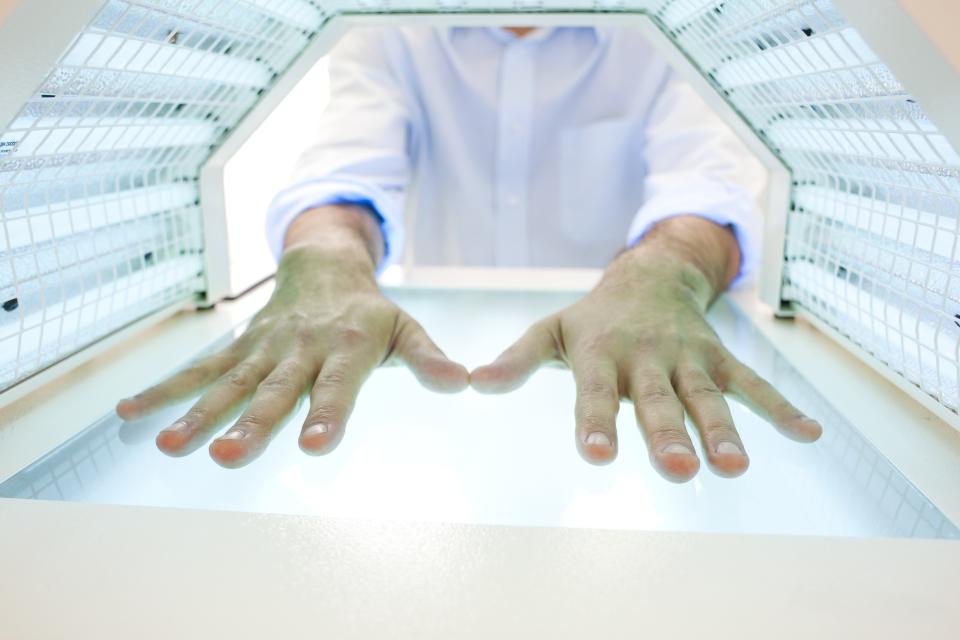Kim Kardashian Claimed That Tanning Beds Help Her Skin Condition, So I Asked A Dermatologist To Weigh In
Last month Kim Kardashian took to her social media to partake in the "Of course" TikTok trend by showing a tour of her SKKN headquarters.

At one point in her video, she points out that she has a tanning bed, saying, "I’m Kim Kardashian, of course I have a tanning bed…” I personally love it when celebs partake in fun social media trends, but I (and the rest of the internet) had some mixed feelings — not only about Kim's out-of-touch video but also about her tanning bed. I thought we left these back in the early 2000s.

Considering experts have told us our entire lives that tanning beds are extremely dangerous (as a reminder: they cause sun damage, increase your risk for skin cancers, make you age faster, increase wrinkles, and so on), it's no wonder Kim's use of a tanning bed caused an uproar on social media.

Due to the backlash she received, Kim tried defending her use of tanning beds by saying, "I have psoriasis and it really helps when it's bad. But I don't use it too often."

Since then, others have chimed in via the comments section of her video, backing up Kim's claim that tanning beds help some people with psoriasis or similar skin conditions like eczema.
To get to the bottom of this and learn if tanning beds are helpful in certain situations, I reached out to Dr. Hamza Bhatti, a double board-certified dermatologist at Schweiger Dermatology Group in NYC.

Ultimately, Dr. Bhatti does not recommend using tanning beds to treat skin conditions. Instead, he recommends using "a lightbox for Narrowband UVB therapy, which has bulbs that emit a specific wavelength at 311–313 nm that is controlled and has been proven to help treat psoriasis, while at the same time not causing sun damage to the skin," he told BuzzFeed.
If you're not sure what psoriasis is, it's a condition in which "the immune system becomes overactive, causing skin cells to multiply too quickly and form itchy, dry patches," according to the National Institute of Arthritis and Musculoskeletal and Skin Diseases.
UVB therapy shuts down the overactive immune cells of the skin in many skin diseases. Luckily, UVB therapy does not increase the risk of skin cancer such as basal cell carcinoma, squamous cell carcinoma, melanoma, or other rare skin cancers, according to Dr. Bhatti.

On the other hand, says Dr. Bhatti, tanning beds have not been shown to help with skin conditions and only cause more harm than good. "Tanning beds use commercially available bulbs that typically emit 95% UVA (320–400 nm) and 5% UVB (290–320 nm) light. These wavelengths are not as effective to treat psoriasis and increase skin cancer risk," he added.

In addition to helping treat psoriasis, "Narrowband UVB therapy can help with re-pigmenting areas associated with vitiligo and itchy lesions such as eczema. I also recommend this to pregnant patients with psoriasis and eczema since most treatments are not used during pregnancy," Dr. Bhatti explained.

Aside from using narrowband UVB therapy, Dr. Bhatti said alternatives like excimer lasers are also used for more localized and focused lesions with different skin conditions. PUVA, psoralen, and ultraviolet radiation (UVA) is another treatment for psoriasis and other severe skin conditions.
However, it's important to note that studies have shown that consistent use of PUVA does impact people's risk for non-melanoma skin cancers.
In addition to these more technical treatments, depending on the severity of one's condition, doctors may also recommend topical treatments, injections, or oral medicine to help treat psoriasis.

Lesson learned here — talk to your doctor before participating in any treatments, and continue to avoid tanning beds altogether.
If you have any thoughts on this topic, share them with me in the comments below.
